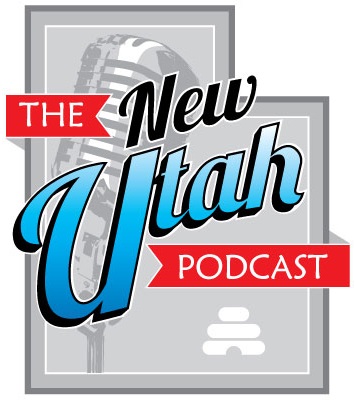Our feature Utahn for the month of August is the Winder Family! We thought there would be a plethora of information but it was pretty straight forward.
The Winders have had a long legacy in the state of Utah in farming cows and in politics. John R Winder, the family patriarch, was born in 1821 and besides his dairy farm would be known best for being a General Authority for the Church of Jesus Christ of Latter Day Saints. Mr. Winder had 4 wives and 30 children. According to Wikipedia, “Winder was generous with his wealth: The poor, orphans, and widows benefited greatly from his efforts. Winder also became a figure in politics and the militia in the territory. He led the Nauvoo Legion to stop the advance of Johnston’s Army in the Utah War of 1857. In the Black Hawk War (Utah), he fought as Adjutant General. He was the chief aid to General Daniel H. Wells, and wrote up the expense report submitted to congress at the conclusion of the conflict.“
It wasn’t until 2019 that they discontinued their 139 years of door delivery of their products. Before this discontinuation, Winder Farms provided cheese, yogurt, eggs, fresh-squeezed juices, cookie dough, fresh fruits, vegetables, salads, pasta, bacon and sausage. Not just your typical milkman! Their focus turned to local grocers, and they are currently available in Dan’s, Dick’s, Fresh Market, Harmons, Lee’s Market, Macey’s, Ridley’s, Smith’s, Sprouts, Target, The Store, Whole Foods, Winegars and more. Over 140 years there has been an incredible evolution that Tom Wharton of the Salt Lake Tribune covered in 2013.

Brian Wallace of the Deseret News wrote about the farm, “Along the way, the operations moved from the Poplar Farm, at 2700 S. 300 East, to West Valley City in 1931; milk containers advanced from cans to glass to polycarbonate bottles; deliveries moved from horse-drawn vehicles to trucks; and a partnership was forged between the family and Dolphin II and Peterson Partners in 2004. The product lines have expanded often, too, including the addition of bread to the dairy products in 1958.” It is also on the record that over the years, since 1889, they have been through 30 logos! That has to be some kind of record we imagine. On a side note, if you’ve ever wondered what the red and white checkered tower out in West Valley is, that is the old Winder Farm tower.

Sunset Old Winder Dairy Tower
Not only have the Winder’s had their hands in dairy, they have had 11 family members (there were 10 at the time of the Deseret News article) that have been part of Utah’s political landscape. In 2018, 3 family members won their respective elections. From city council seats, board of education, House of Representatives, Governor’s assistance, and sheriff’s they have definitely put a legacy in Utah politics.
Some of our resources this episode: Deseret News / Salt Lake Tribune / Wikipedia
Music By: Folk Hogan; Bootleggers Dance


